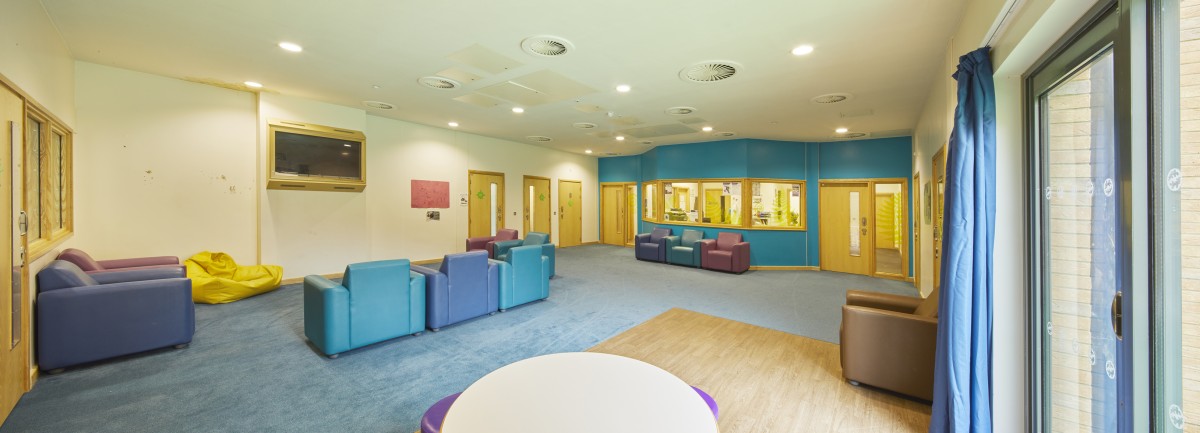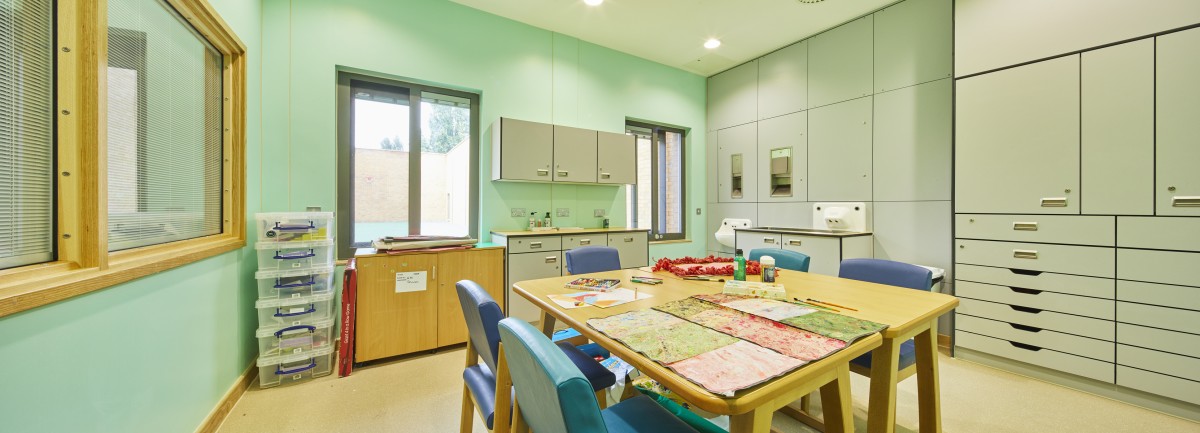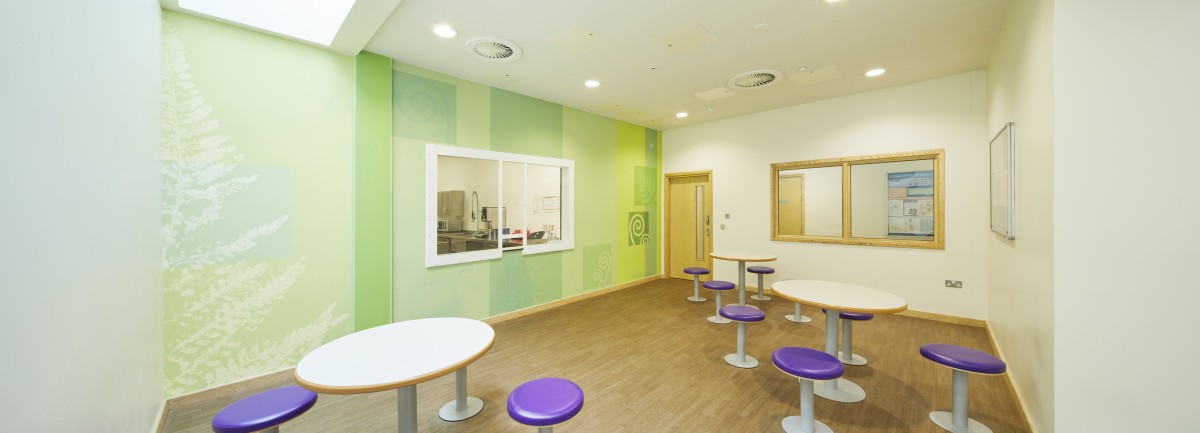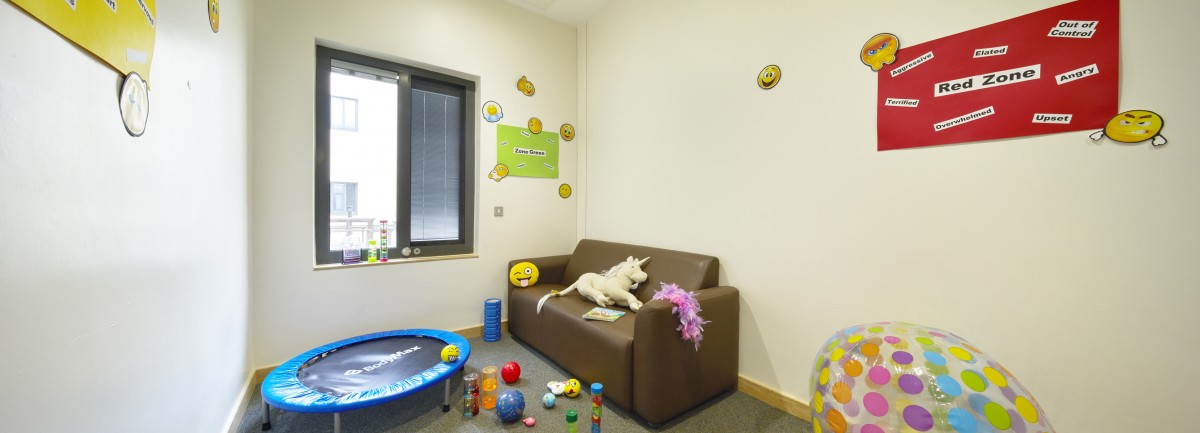Contact us
 Refer now
Refer now

Berry
Autistic Spectrum Disorder, St Andrew's
Berry is a specialist low secure service for men with autism. The unit accepts direct external referrals or patient transitions from medium secure services.
As an assessment and stabilisation environment, Berry is an integral part of our comprehensive Autistic Spectrum Disorder (ASD) service, which supports patients in managing and understanding their challenging behaviour and is suitable for those in an acute or deteriorating phase of their condition.
Individualised care is essential for effective management of ASD and we pride ourselves on providing a bespoke service. We assess a patient’s ASD, health & wellbeing and vocational needs to develop a personalised treatment programme. Through continuity of care we’re able to encourage pathway transitions and support patients on a journey back to the community.

Welcome to FitzRoy House

Spacious open plan living area

Ward based arts and activities room

Modern bright dining room

Space to relax
People referred will have a history of challenging or risk behaviours and would meet the criteria for detention under the mental health act.
These individuals may have identifiable mental health difficulties, in particular affective disorders, adjustment and separation-related disorders, and psychotic illnesses. Berry can accept male patients:
Upon admission our aim is to assess distressing symptoms, stabilise risk behaviours, reduce anxiety and promote engagement with therapy. We assess patient’s ASD needs such as communication, social interaction and sensory difficulties using a range of specific diagnostic assessment tools including ADOS and ADI.
Psychiatric and risk assessments, including HCR-20, RSVP and START, help build a picture of the patients health and wellbeing needs. Physical health, nutrition and activity & exercise are also considered when we formulate the patient’s care plan.
A range of psychological therapies are adapted for each individual to support new skill development and address offending behaviours. Our aim at this stage is to prevent relapse and promote resilience and recovery, and may include interventions, such as:
- sexual offending and/or inappropriate sexual behaviour
- arson/fire setting
- managing anxiety and anger
- improving social understanding and communication
- managing sensory difficulties
- specific psychosocial interventions for adults with ASD.

 PICU and Acute Bed Availability
PICU and Acute Bed Availability